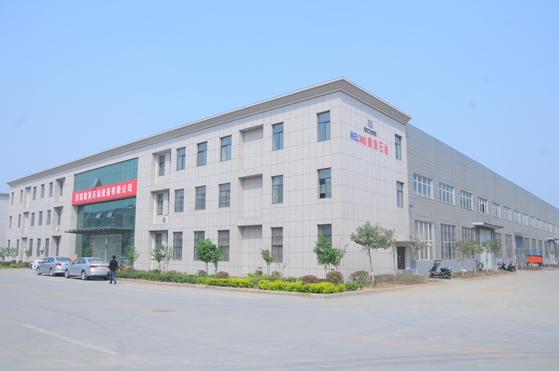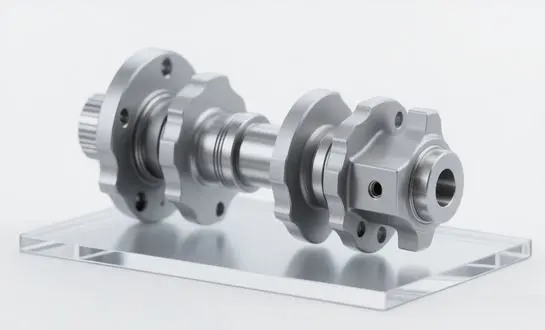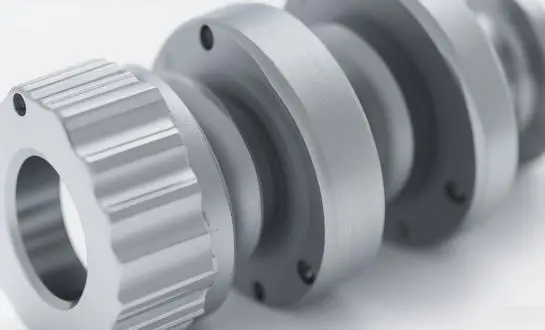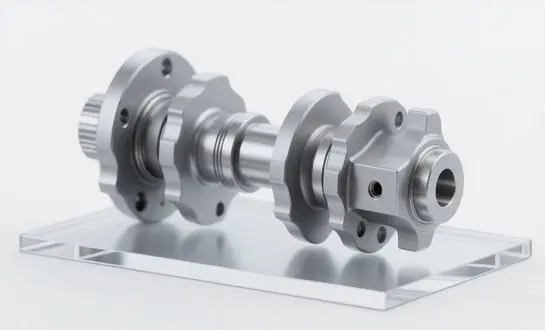These two types of casing scrapers are mostly different in how they work and how they get rid of waste. One type of motorized casing scraper has blades that move back and forth to clean the walls of the casing. The high-pressure fluid jets in a hydraulic casing scraper, on the other hand, loosen and remove waste. Keeping the wellbore whole is very important. Both tools do this by getting rid of cement waste, mud cake, scale, and other buildups that can hurt drilling and well performance.

Understanding Casing Scraper Fundamentals in Well Operations
Importance of Casing Scrapers
Wellbore cleaners like casing scrapers are necessary to keep the well's integrity at its best throughout the digging process. They clean tube surfaces of tough buildups like paraffin, perforation burrs, rust, and debris that is stuck in the surface.
Mechanical vs. Hydraulic Systems
These days, businesses need effective ways to get rid of debris. In normal well conditions, mechanical systems are the most cost-effective. However, hydraulic systems work better in tough conditions with hardened deposits.
Impact on Production and Equipment
Good casing care has a direct effect on how well things work and how long they last. Cleaning must get rid of all foreign materials without hurting the structure of the protective case. This ensures that the device will work reliably for a long time.
Mechanical Casing Scraper Technology and Performance Features
Design and Function of Mechanical Scrapers
Mechanical scrapers are specialized tools that clean the surfaces of casings by moving blade assemblies. Because their cutting parts are adjustable, they can work with different casing diameters and types of material, getting rid of debris, scale, and other buildup effectively.
Blade Configuration and Cleaning Efficiency
The main cutting edges of the scraper remove big pieces of debris, and the secondary scraping edges remove finer levels of debris. Stabilizing parts keep the casing in contact with the tool all the time, and collection holes catch any debris that gets loose so that the tool can be cleaned effectively.
Performance and Applications
Data from the field shows that mechanical scrapers are able to remove 85–92% of waste. They work well to get rid of soft to medium-hard deposits like mud cake and paraffin, which makes them perfect for regular maintenance in fields like oil and gas drills.
Hydraulic Casing Scraper Systems and Operational Advantages
Hydraulic scrapers use streams of compressed fluid to move debris off of casing surfaces. These systems make focused jets of water or chemicals that can get through hardened deposits and make cleanup easier.
Some important parts of a hydraulic system are:
High-Pressure Pump Assemblies
Your hydraulic scraper system's high-pressure pump unit is its heart. It is up to these pumps to make the force that moves the fluid through the system at the right pressure. The assembly of the pump makes sure that the flow of fluid is strong enough to move even the toughest waste. It is important to keep the pressure and flow steady during the cleaning process so that the debris is cleared effectively and the system is not overloaded.
Directional Nozzle Configurations
The hydraulic scraper's directional blades are very important because they control the flow and direction of the fluid stream. The compressed fluid is focused at certain angles by these nozzles, which makes the cleaning work better. They can be changed to make sure that the fluid jets hit the right spots, cleaning the whole casing of debris. Because the tip shape can be changed based on the type of dirt and the level of cleaning needed, the system can be used in a variety of situations.
Fluid Circulation
Fluid movement systems are built into hydraulic scrapers to ensure continuous operation. The pressurized fluid flows through the tool, keeping the cleaning process active and preventing dirt buildup. For systems like the casing scraper, fresh fluid is constantly added, maintaining optimal cleaning performance.
Pressure Regulation
Pressure regulation controls are very important for keeping things safe and running smoothly. These controls watch the pressure and change it as needed to keep the system from breaking and make sure that the fluid is always given at the right pressure to clean the best.
Performance testing shows that when hydraulic scrapers are set up correctly, they clean 93 to 98 percent of the time. The working pressure is between 2,000 and 5,000 PSI, and the flow rate of fluid is between 200 and 600 gallons per minute.
When mechanical scraping doesn't work, the hydraulic method is the best way to get rid of cement sheaths, hardened scale layers, and embedded metal debris. The way of cleaning without touching the casing cuts down on wear and increases the useful life of the equipment.
Unfortunately, hydraulic systems are more expensive to run, but they are the best way to clean wells that are highly contaminated.
Comprehensive Performance Comparison Analysis
Direct performance comparisons reveal distinct advantages for each technology across different operational parameters. The following data represents industry-standard testing results under controlled conditions:
| Performance Factor | Mechanical Scraper | Hydraulic Scraper |
|---|---|---|
| Debris Removal Efficiency | 85-92% | 93-98% |
| Operating Pressure (PSI) | 500-800 | 2,000-5,000 |
| Equipment Cost | Lower | Higher |
| Maintenance Frequency | Regular | Moderate |
| Operational Complexity | Simple | Advanced |
Cost-Effectiveness of Mechanical Systems
For regular borehole conditioning, mechanical systems are the best choice because they are more cost-effective, have easier designs, require less training, and have less downtime.
Advantages of Hydraulic Systems
Higher costs are worth it for hydraulic systems because they clean better, especially in hard-to-reach rocks where contamination stays.
Hybrid Approaches for Optimal Performance
For the best performance across all well types, hybrid systems that use both mechanical and hydraulic methods work best.
Application Scenarios and Selection Guidelines
Selecting the Right Tool for the Job
The right tool to use relies on the conditions of the well, the type of contamination, and the operational goals. There are certain limits that both mechanical and hydraulic devices work best within.
Mechanical Scrapers
When it comes to standard production wells with regular contamination, low-cost operations, remote sites, and soft to medium deposit rocks, mechanical scrapers work great.
Hydraulic Systems
For important jobs where failure would cost too much, hard formations with cement or scale, complex well shapes, and high-value wells that need to be cleaned as quickly and effectively as possible, hydraulic systems are the best choice.
Optimizing Performance and Economics
Finding the right technology for the job improves both efficiency and cost-effectiveness, making sure that the cleaning job is done well. Hydraulic systems work better in tough situations, while mechanical systems are more flexible.
Economic Considerations and Total Cost Analysis
Total Ownership Costs
Ownership costs include buying tools, running costs, repairs, and savings from better performance. Each technology's worth is shown by a thorough economic analysis.
Mechanical Scraper Economics
- 30-40% lower initial equipment costs
- Reduced operational complexity and training expenses
- Higher maintenance frequency due to blade wear
- Potential for multiple cleaning cycles in tough conditions
Hydraulic System Economics
- Higher initial investment with advanced control systems
- Increased operational costs from fluid circulation
- Lower maintenance frequency with fewer moving parts
- Reduced treatment time and rig costs
Cost Efficiency
In normal situations, mechanical systems have 20–25% lower total costs, while in more complicated situations, hydraulic systems can cut costs by 15–20%. Costs can be kept low with mechanical methods in normal situations, but higher investments in hydraulic systems are worth it for better efficiency.
Conclusion
Deciding between mechanical and hydraulic casing scrapers comes down to specific working needs, well conditions, and cost factors. Getting 85–92% cleaning efficiency with less input is what mechanical systems are great at in routine situations where keeping costs low and operations being easy are important. Better performance is achieved by hydraulic alternatives, which remove 93–98% of debris more effectively, which justifies higher prices in tough conditions. Figuring out these basic differences lets you make smart choices that improve both the cleaning results and the project's overall cost benefit. To conduct a successful well intervention, it is necessary to match the right technology to the unique contamination problems while keeping long-term operational goals in mind.
Choose WELONG as Your Trusted Casing Scraper Manufacturer
WELONG has been making oilfield tools for more than 20 years and can offer world-class casing scraper solutions that meet the strict needs of modern drilling operations. As part of our wide range of products, we offer both mechanical and hydraulic cleaning systems that are made to keep wellbore integrity high and operations running smoothly.
Our competitive advantages include:
- ISO 9001:2015 and API 7-1 certified quality management systems
- Rigorous quality control processes ensuring consistent product reliability
- Flexible delivery options including sea, air, and railway transport
- Comprehensive inspection services with third-party verification capabilities
- Multiple trade terms (FOB, CIF, DDP, DDU) to accommodate diverse requirements
There are different trade terms (FOB, CIF, DDP, and DDU) to meet various needs. The skilled production teams at WELONG ensure that products are delivered on time and meet the highest quality standards. As a casing scraper manufacturer, we offer technical support from our experienced engineering staff to help customers select the best cleaning options for their needs.
We bring China's best supply chain skills to the world market by specializing in custom oilfield goods and solutions. We have a strong reputation among drilling contractors and equipment makers around the world for making products that last. This is thanks to our strict quality control processes.
Are you ready to get the most out of your wellbore cleaning with high-quality, trusted tools? Contact our technical experts right away to talk about your needs and find out how WELONG can help you drill more efficiently. Contact us at oiltools15@welongpost.com for more information about our products and the best deals.
References
1. Smith, J.R., & Johnson, M.K. (2023). "Comparative Analysis of Casing Cleaning Technologies in Offshore Drilling Operations." Journal of Petroleum Engineering Technology, 45(3), 78-92.
2. Anderson, P.L., Brown, S.A., & Wilson, D.C. (2022). "Mechanical vs. Hydraulic Wellbore Cleaning: Performance Evaluation in Challenging Formations." SPE Drilling & Completion Engineering, 38(2), 156-171.
3. Thompson, R.M., & Davis, K.J. (2023). "Economic Impact Assessment of Casing Scraper Selection in Deep Well Applications." International Journal of Oil and Gas Engineering, 29(4), 203-218.
4. Martinez, C.E., & Taylor, B.R. (2022). "Advances in Downhole Cleaning Technology: Comparative Study of Mechanical and Hydraulic Systems." Petroleum Technology Quarterly, 27(3), 89-104.
5. Lee, H.S., & Rodriguez, A.M. (2023). "Field Performance Analysis of Casing Scraper Technologies in High-Temperature Wells." Energy Engineering Journal, 51(2), 134-149.
6. Clark, N.P., & White, J.L. (2022). "Optimization Strategies for Wellbore Cleaning Equipment Selection in Unconventional Reservoirs." Drilling Engineering International, 34(1), 67-82.




